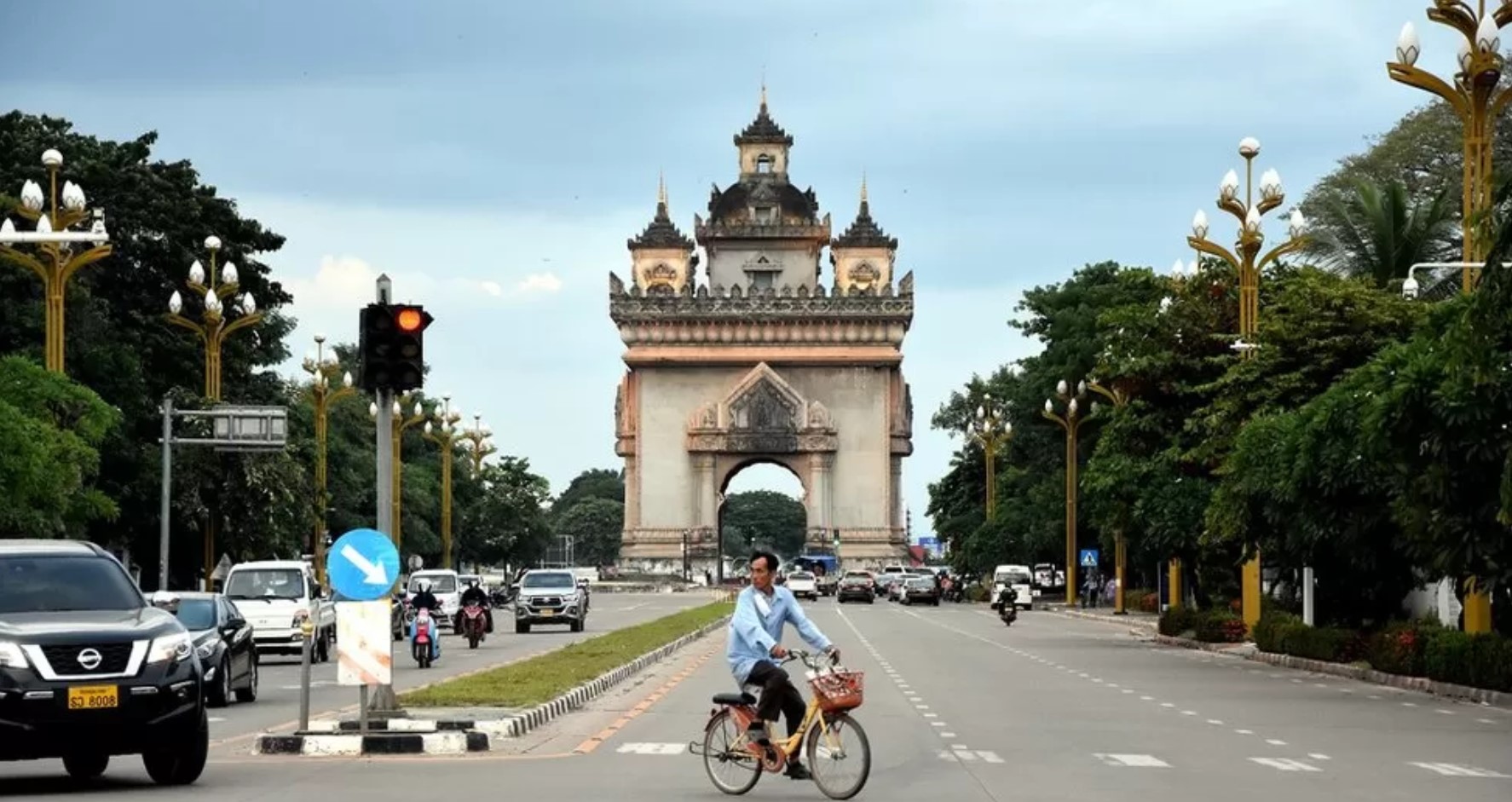Jo is the holder of a newly minted degree in English literature from one of the top universities in Laos. But the 22-year-old, who graduated only weeks ago, says he already feels “hopeless”.
Confronted with a barren job market, the Vientiane resident holds no hope of finding work at home, and instead aims to become a cleaner or a fruit picker in Australia. His aspirations are low, but they reflect a hushed disenchantment spreading among his peers; the result of a severe and sustained economic downturn that has ravaged Laos for the past two years.
“Every person in this generation doesn’t believe in the government. They want to leave Laos, they don’t believe anything the government says,” he tells the BBC. “Most of my friends have the same thoughts, but we only talk about it privately. If you say bad things about them in public, I don’t know what will happen.”
The economic crisis has been caused by a rash programme of government borrowing used to finance Chinese-backed infrastructure projects which has begun to unravel. The crisis shows little sign of easing, with public debt spiralling to unsustainable levels, resulting in government budget cuts, sky-high inflation and record-breaking currency depreciation, leaving many living on the brink in one of South East Asia’s poorest countries.
Faced with a dire economic situation, and with the April shooting of activist Anousa “Jack” Luangsuphom underscoring the brutal lengths authorities in the one-party state will go to silence calls for reform, a generation of young Laotians increasingly see their future abroad.
“[Young people] aren’t even thinking about change, it’s a feeling of how am I going to get out of this country – I’m stuck here, there’s no future for me,” said Emilie Pradichit, a Lao-French international human rights lawyer and the founder of human rights group Manushya Foundation.
“If you see your country becoming a colony of China, you see a government that is totally corrupt, and you cannot speak up because if you do you might be killed – would you want to stay?”
The ‘debt trap’
A sparsely populated, landlocked country of 7.5 million people, Laos is one of the region’s poorest and least developed nations. In a bid to transform the largely agrarian society, the past decade has seen the government take on major infrastructure projects, mostly financed by historic ally and neighbour China – itself on a lending spree since 2013 as part of its global infrastructure investment programme, the Belt and Road initiative (BRI).
Laos has built dozens of foreign-financed dams to transform itself into the “battery of South East Asia” as a major exporter of electricity to the region. But oversupply has turned many dams unproductive, and the state electricity company sits in $5bn (£4.1bn) debt. Lacking funds, Laos handed a majority Chinese-owned company a 25-year concession to manage large parts of its power grid in 2021, including control over exports.
Also among the debt-laden megaprojects is the Lao-China railway, connecting Vientiane to southern China. It opened in December 2021 at a cost of $5.9bn (£4.85bn), but saddled the Lao government with $1.9bn in debt. Beijing says the railway has created an “economic corridor”, but the numbers just don’t add up for some economists, not least because Chinese state-owned companies hold a 70% stake.
“I’m sure people are happy to travel very quickly across Laos, but it’s not justified at the cost that was agreed to,” economist Jayant Menon, a senior fellow at ISEAS-Yusof Ishak Institute in Singapore, says of the railway.
All of this has added to Laos’ ballooning debt, which is now ninth highest globally as a share of its GDP, according to the International Monetary Fund. Around half of that is owed to China, and Laos is now having to borrow more from lenders in the country just to stay afloat.
“Laos is so heavily indebted to China that they’re negotiating position is compromised,” he said. “It’s having to borrow just to service the debt. That’s the definition of a debt trap.
The Lao government could not be reached for comment. But Mr Menon emphasised that Laos has repeatedly rejected other international lenders in favour of Beijing, perhaps because of a belief within the government that China “will not let another socialist country fail”. He added that Beijing was also cautious about letting another BRI country default on its debt after Sri Lanka.
https://www.bbc.com/news/world-asia-66924300
